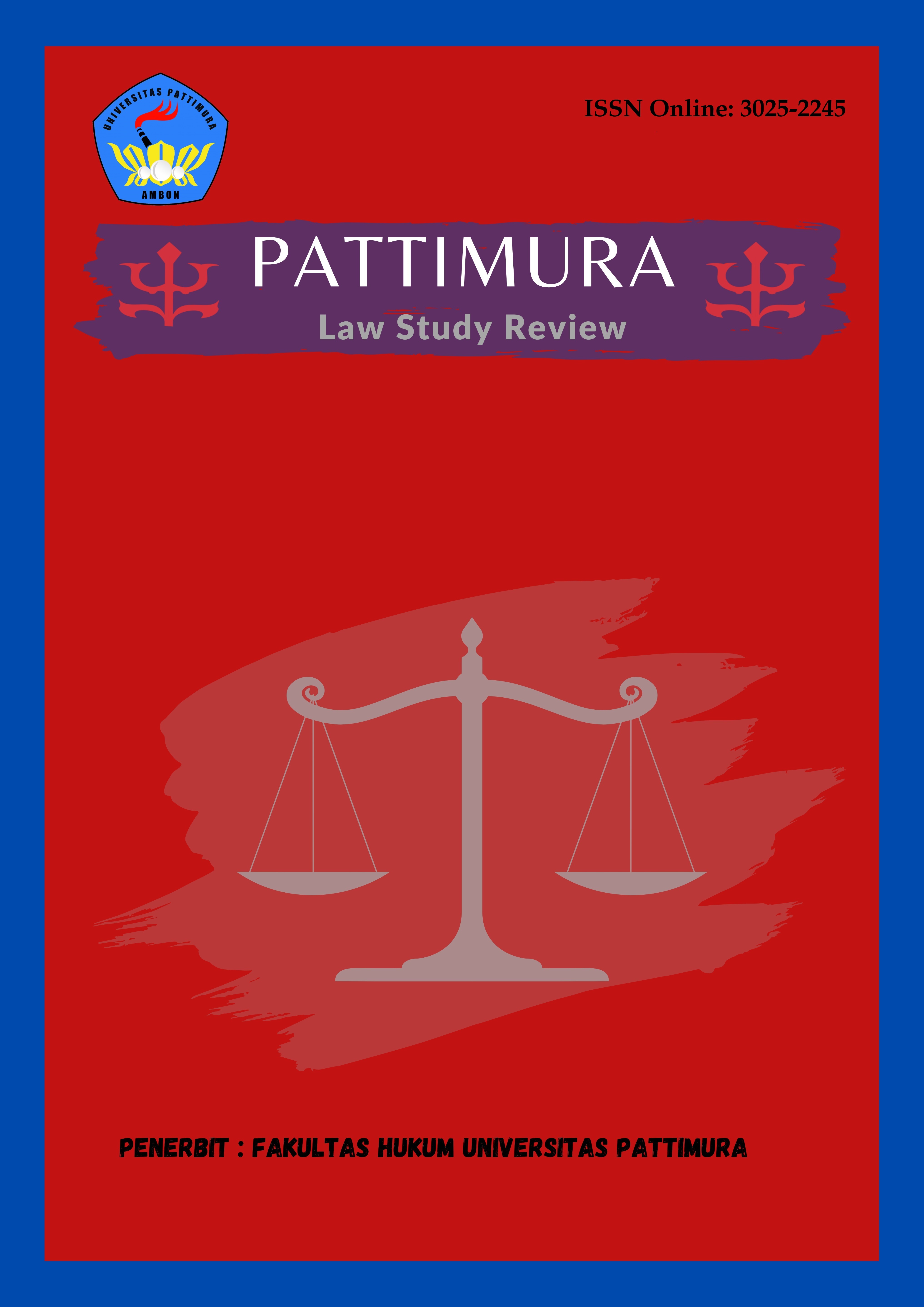Kedudukan Pengemudi Ojek Sebagai Mitra Kerja Dalam Perjanjian Pengangkutan Berbasis Aplikasi
Abstract
Application-based public transportation is a concept where public transportation services such as taxis, car sharing, or other public transportation are integrated and operated using application technology, especially mobile applications. Application-based public transportation is an innovation that brings many benefits to the community, both in terms of ease of access to transportation, increased security, and cost efficiency. The Partnership Agreement between the driver and the application company is referred to as a partnership agreement. The responsibility of the driver is adjusted to the losses of the consumer, Article 234 paragraph (1) of Law Number 22 of 2009 concerning Traffic and Road Transportation states that "drivers, motor vehicle owners, and/or public transportation companies are responsible for losses suffered by passengers and/or owners of goods and/or third parties due to driver negligence, This study shows that the position of application-based motorcycle taxi drivers as partners in transportation agreements has various legal and practical implications. Although this partnership offers flexibility and economic opportunities, there are challenges that must be faced regarding legal protection and driver welfare. Clear regulations and adequate protection are needed to ensure that application-based motorcycle taxi drivers can work safely and prosperously. Thus, the role of drivers as partners in transportation agreements can be optimized for the benefit of all parties involved. The responsibility of the driver is adjusted to the loss of the consumer. The creators and managers of the Maxim application help in the form of compensation that has been explained in the terms and conditions of Maxim in the responsibility regulations, the essence of which is that Maxim cares about the safety of application users by providing compensation according to the losses suffered by passengers.
Downloads
References
Abbas Salim, Manajemen Transportasi, Jakarta: Raja Grafindo, 2012.
Abdulkadir Muhammad, Hukum Perusahaan Indonesia, Bandung: Citra Aditya Bakti, 2010.
Adriano. “Menguji Konsep Pertanggungjawaban Pidana Korporasi” Jurnal Yuridika, 28 no. 3 (2013).
Andika Wijaya, Aspek Hukum Bisnis Transportasi Jalan Online, Jakarta: Sinar Grafika, 2016.
Andi Hamzah, Kamus Hukum, Jakarta: Ghalia Indonesia, 2005.
Annisa Hidayati & Lucia YH, “Resiko Kecelakaan Lalu Lintas Berdasar Pengetahuan, Penggunaan Jalur dan Kecepatan Berkendara” Jurnal Berkala Epidemioogi, 4, no. 2 (2016).
Ari, Muhammad As, “Perlindungan Hukum Terhadap Perjanjian Jasa Transportasi Online” Islamic Business Law Review 1, no. 1 (2019).
Aryo Dwi Prasnowo & Siti Malikhatun Badriyah, “Implementasi Asas Keseimbangan Bagi Para Pihak dalam Perjanjian Baku”, Jurnal Magister Hukum Udayana, 8, no. 1 (2019).
Janus Sidabalok, Hukum perlindungan Konsumen di Indonesia, Bandung: Citra Aditya Bakti, 2006.
Kecelakaan Lalu Lintas, Mengintai Setiap Saat, https://rsupsoeradji.id/kecelakaan-lalu-lintas-mengintai-setiap-saat/.
Philipus M Hadjon, Perlindungan Hukum Bagi Rakyat Indonesia, Surabaya: Bina Ilmu, 1987.
Ridwan H.R, Hukum Administrasi Negara, Yogyakarta: UII Press, 2002.
Romli Atmasasmita, Asas-Asas Perbandingan Hukum Pidana, Jakarta: Yayasan LBH, 1989.
Satriyo Budi SantosoAdi Suliantoro, “Perlindungan Konsumen Pengguna Ojek”, Jurnal Transparansi Hukum, 7 no 1 (2024).
Soedjono Dirdjosisworo, Pengantar Ilmu Hukum, Jakarta: Raja Grafindo Persada, 2008.
Utung Rasyidin, Dedi Supriyadi, Pengantar Ilmu Hukum dari Tradisi ke Konstitusi, Bandung: Pustaka Setia, 2014.
Warpani, Suwardjoko. Merencanakan Sistem Perangkutan. Bandung: Penerbit ITB, 1990.
Wirjono Profjokoro, Perbuatan Melanggar Hukum Dipandang Dari Sudut Hukum Perdata, Yogyakarta: Mandar Maju, 2000.
Wulan Berlianti , Pamungkas Satya Putra, “Tanggung Jawab Perusahaan Penyedia Jasa Transportasi Online Terhadap Keselamatan Penumpang Berdasarkan Undang- Undang Nomor 22 Tahun 2009 Tentang Lalu Lintas dan Angkutan Jalan di PT. Gojek Indonesia”, Jurnal Ilmiah Wahana Pendidikan, 9 no 8 (2023): p. 481-491.
Yuyun Saputri. ”Perlindungan Hukum Bagi Pekerja Ojek Online Apabila Mengalami Kecelakaan Kerja Berdasarkan Hukum Ketenagakerjaa”. 2019. Skripsi. Fakultas Hukum Universitas Sriwijaya Indralaya.
Copyright (c) 2025 Steven Laisina, Sarah Selfina Kuahaty, Mahrita Aprilya Lakburlawal (Author)

This work is licensed under a Creative Commons Attribution-NonCommercial 4.0 International License.
Authors who publish their manuscripts in this Journal agree to the following conditions:
- The copyright in each article belongs to the author, as well as the right to patent.
- Authors are able to enter into separate, additional contractual arrangements for the non-exclusive distribution of the journal's published version of the work (e.g., post it to an institutional repository or publish it in a book), with an acknowledgment of its initial publication in this journal.
- Authors are permitted and encouraged to post their work online (e.g., in institutional repositories or on their website) prior to and during the submission process, as it can lead to productive exchanges, as well as earlier and greater citation of published work.
- Authors have the right to self-archiving of the article (Author Self-Archiving Policy)













